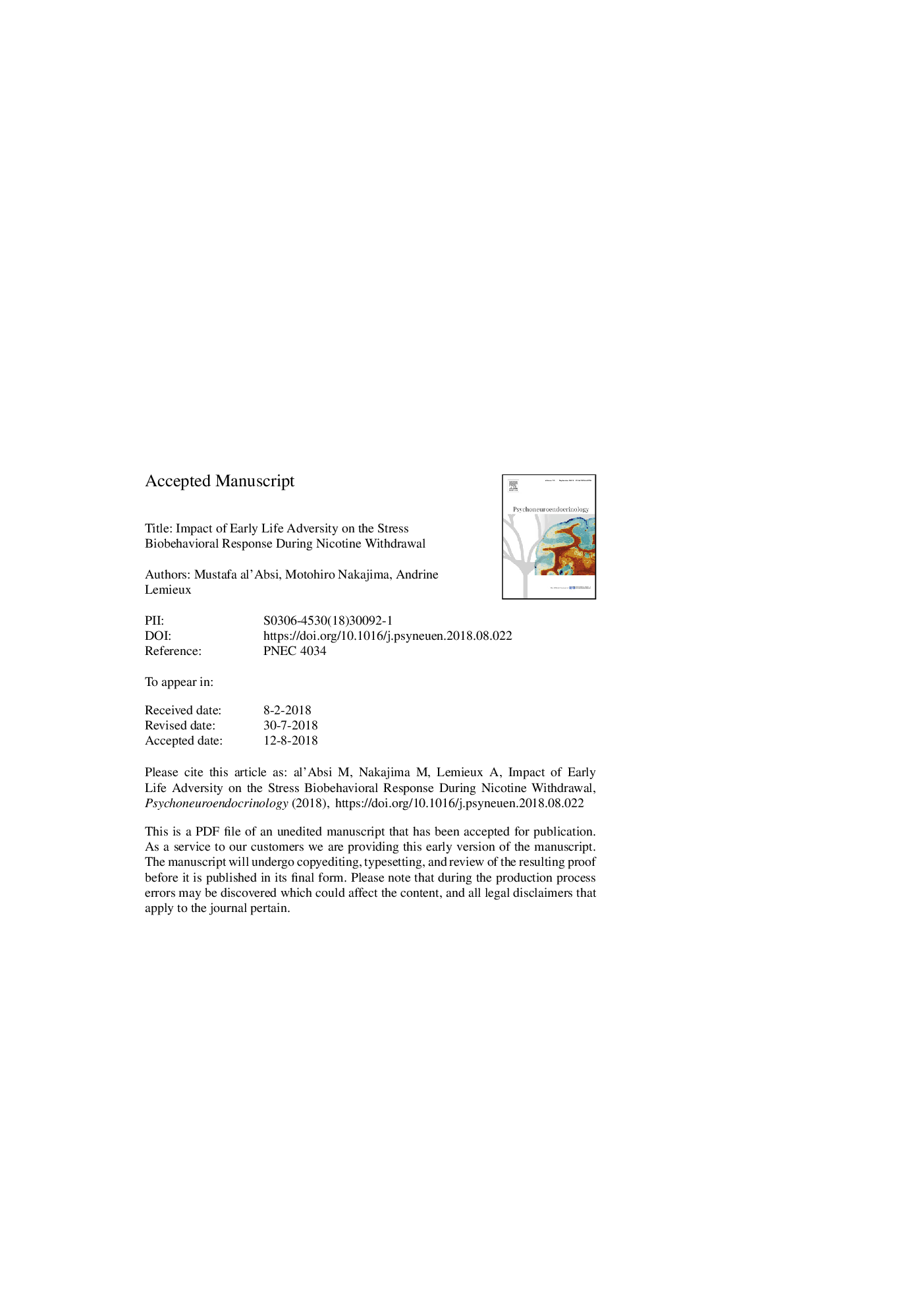| Article ID | Journal | Published Year | Pages | File Type |
|---|---|---|---|---|
| 11002043 | Psychoneuroendocrinology | 2018 | 38 Pages |
Abstract
Exposure to early life adversity (ELA) is associated with increased subsequent risk for addiction and relapse. We examined changes in psychobiological responses to stress in dependent smokers and nonsmoking controls and evaluated how history of early adversity may exacerbate acute changes during nicotine withdrawal and acute stress. Smokers were randomly assigned to one of two conditions; 24âh withdrawal (66 smokers) from smoking and all nicotine-containing products or smoking ad libitum (46 smokers) prior to an acute laboratory stress induction session; and 44 nonsmokers provided normal referencing. The laboratory session included a baseline rest, stress and recovery periods. Plasma and saliva samples for the measurement stress hormones and cardiovascular and self-report mood measures were collected multiple times during the session. Multivariate analysis confirmed that all groups showed stress-related increases in negative mood, cardiovascular measures and stress hormones, particularly smokers in the withdrawal condition. Individuals with high ELA showed greater adrenocorticotropic hormone (ACTH), but lower plasma and salivary cortisol levels, than those with low ELA. Cortisol differences were abolished during tobacco withdrawal. These findings demonstrate that ELA moderates the effects of withdrawal on stress-related biobehavioral changes.
Related Topics
Life Sciences
Biochemistry, Genetics and Molecular Biology
Endocrinology
Authors
Mustafa al'Absi, Motohiro Nakajima, Andrine Lemieux,
